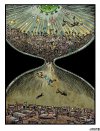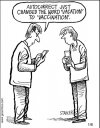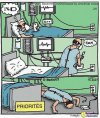Navigation
Install the app
How to install the app on iOS
Follow along with the video below to see how to install our site as a web app on your home screen.
Note: This feature may not be available in some browsers.
More options
Style variation
Guest viewing limit reached
- You have reached the maximum number of guest views allowed
- Please register below to remove this limitation
- Already a member? Click here to login
You are using an out of date browser. It may not display this or other websites correctly.
You should upgrade or use an alternative browser.
You should upgrade or use an alternative browser.
Can touching a barbell in the gym get you sick with the coronavirus?
- Thread starter Michael Scally MD
- Start date
Answer the questions to calculate your risk profile and see where you fall in your county's and state's vaccine lineup. This estimate is based on a combination of vaccine rollout recommendations from the CDC and the National Academies of Sciences, Engineering, and Medicine.
“We don’t know when a pandemic might strike. But we can be sure of two things. Everything we do before a pandemic will seem alarmist. Everything we do after a pandemic will seem inadequate. This is the dilemma we face, but it should not stop us from doing what we can to prepare. We need to reach out to everyone with words that inform, but not inflame. We need to encourage everyone to prepare, but not panic.”
Michael O. Leavitt - Secretary, Department of Health and Human Services - Pandemic Influenza Leadership Forum, June 13, 2007
Ryan; Jeffrey R. (2012-05-13T23:58:59). Pandemic Influenza: Emergency Planning and Community Preparedness (p. vii). Taylor and Francis.
Michael O. Leavitt - Secretary, Department of Health and Human Services - Pandemic Influenza Leadership Forum, June 13, 2007
Ryan; Jeffrey R. (2012-05-13T23:58:59). Pandemic Influenza: Emergency Planning and Community Preparedness (p. vii). Taylor and Francis.
CAIRO — Hoping to quell growing outrage over a video from inside an Egyptian hospital purportedly showing a number of Covid-19 patients dying after an interruption in oxygen supply, the country’s authorities insisted that neither shortages nor negligence caused the deaths.
The wrenching footage, posted on social media this weekend, was shot on a cellphone by a visiting relative who appeared to be in a frantic state as he paced from bed to bed repeating the phrase “Everyone in the intensive care unit has died.”
On Sunday, the Ministry of Health released a statement confirming that four patients had died at El Husseineya Central Hospital, two and a half hours from Cairo, but offered a different narrative about what had happened.
“They died at different times; most of them were elderly people with chronic illnesses who suffered from complications as a result of their infection with the coronavirus, which led to the deterioration of their health and their death,” the statement read.
The statement added that there were at least a dozen other patients in the hospital, including newborns in incubators, who were linked to the same oxygen network and that none were affected, “confirming the lack of a connection between the deaths and allegations made about a shortage of oxygen.”
The video clip, less than a minute long, spread quickly and widely on social media and was broadcast on state-owned television talk shows, where officials are invited to comment. Asked why relatives were allowed into the isolation ward, the governor of Al Sharqiya, a region northeast of Cairo where the hospital is, said that “there was no visitation” and that the man who filmed inside had “stormed the ward” after learning about the death of his relative.
The New York Times could not independently confirm if an interruption or shortage of oxygen had occurred, but two witnesses reached by phone objected to the official narrative and described a moment of panic among hospital staff members that was followed by the sudden death of a number of patients. They also said that they had been allowed to visit for an hour every day between 3 p.m. and 4 p.m., a time they used to help feed and change their sick relatives.
Similar threads
- Replies
- 59
- Views
- 1K
Sponsors
Latest posts
-
SLU-PP-332: Bioavailability and the True Minimum Effective Dose
- Latest: LostButFound
-
-




